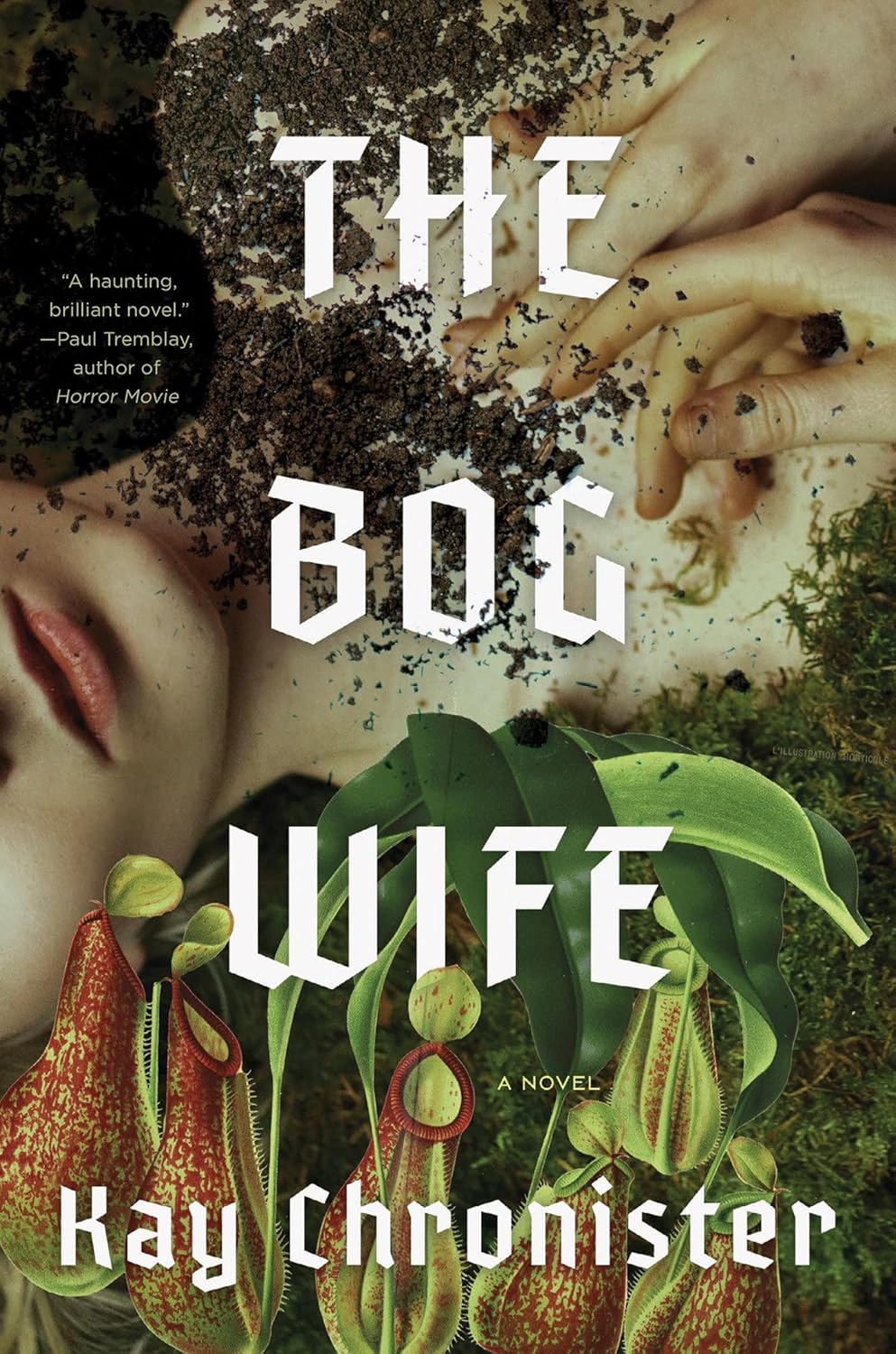The Bog Wife: A Novel
- By Kay Chronister
- Counterpoint Press
- 336 pp.
- Reviewed by Mariko Hewer
- October 15, 2024
A family saga that gives new meaning to the word “haunted.”

There are stories embedded so deeply in family lore that no one thinks to question whether they’re true — or more importantly, whether they’re harmful. Kay Chronister’s The Bog Wife centers on such a tale, its slow burn mirroring the quiet, extended decay of the Appalachian marshland in which it’s set.
When family patriarch Charles Haddesley is dying, his five children make plans to bury him alive in their West Virginia cranberry bog. This is part of an age-old ritual whereby the humans who live there surrender their dead to the bog; in return, it creates a “bog-wife” for the incoming patriarch so he can pass his genes down undiluted. To continue the tradition, Charlie, Eda, Nora, and Percy convince their prodigal middle sister, Wenna, to return home from the life she’s made away from her family:
“Her siblings were not, as Wenna initially thought, just the same as they had been 10 years ago. They were worse. They had spent the decade of her absence growing around one another like roots in the same crowded patch of earth, contorting themselves so everyone could fit.”
At the beginning of the rite summoning a bog-wife, each sibling has different aspirations. Eldest Charlie yearns to be free of his nominal role as head of family, while Percy quietly seethes that he would make a better heir. Eda runs on routine, unable to consider the larger implications of their circumstances (living in a derelict mansion on dwindling funds, with no ties to or knowledge of the outside world), whereas Wenna wants to escape back to her life far from them all.
Youngest daughter Nora yearns to be loved unconditionally; after part of the house collapses, she fights her way back toward her room to rescue the animals she’s nurtured and kept as pets. As Eda screams at her to come back, Nora responds, “I can’t leave them…They’re the only ones—.” It’s a testament to how well Chronister has developed her characters that we immediately know the end of that sentence is “who love me.”
The Haddesleys’ plans for ensuring their future are torpedoed when they fail to complete the burial ritual. Although the bog accepts their father’s body, it doesn’t offer up a bog-wife for Charlie:
“For hours he searched the bog meadow, seeing phantom wives in every raised hummock of earth and rotted log…He sat in the mud and stared across the pitiless gray-washed landscape. She was not there. The exchange had failed, or he had. He had no wife. The bog had not made him one.”
For weeks, the siblings circle around each other in crisis, unwilling to give up hope but aware that they cannot continue in this unbearably tense manner. While Wenna grapples with feeling both understood and suffocated at home, Nora carries on a secretive correspondence with an outsider, and Eda undertakes the extreme measures she feels are necessary to save the family.
Percy, meanwhile, believes he’s found an alternate way to create a bog-wife and hopes thus to cement himself as paterfamilias. Charlie, for his part, seeks refuge from his failure in the town library, where he begins to unearth dark secrets about his family’s past that reveal its foundations are as unsteady as the bog itself.
As all these conflicting desires come to a head, Percy emerges from the bog with a woman, but she isn’t what any of them expected. The way they react to this new presence will determine their futures and may help them forge a new and different connection to the land:
“They made their new compact slowly, without ever consciously entering into it, as the days lengthened and the frosts thinned and the firm orange buds appeared on the branches of the maples.”
Although there are a few supernatural elements in this novel, most of its ghosts are firmly earthbound: family trauma, misogyny, silence, and shame. As the bog and its inhabitants trace their way through the seasons, the invested reader may well find themselves already looking forward to Chronister’s next book.
Mariko Hewer is a freelance editor and writer. She is passionate about good books, good food, and good company. Find her occasional insights at @hapahaiku.

